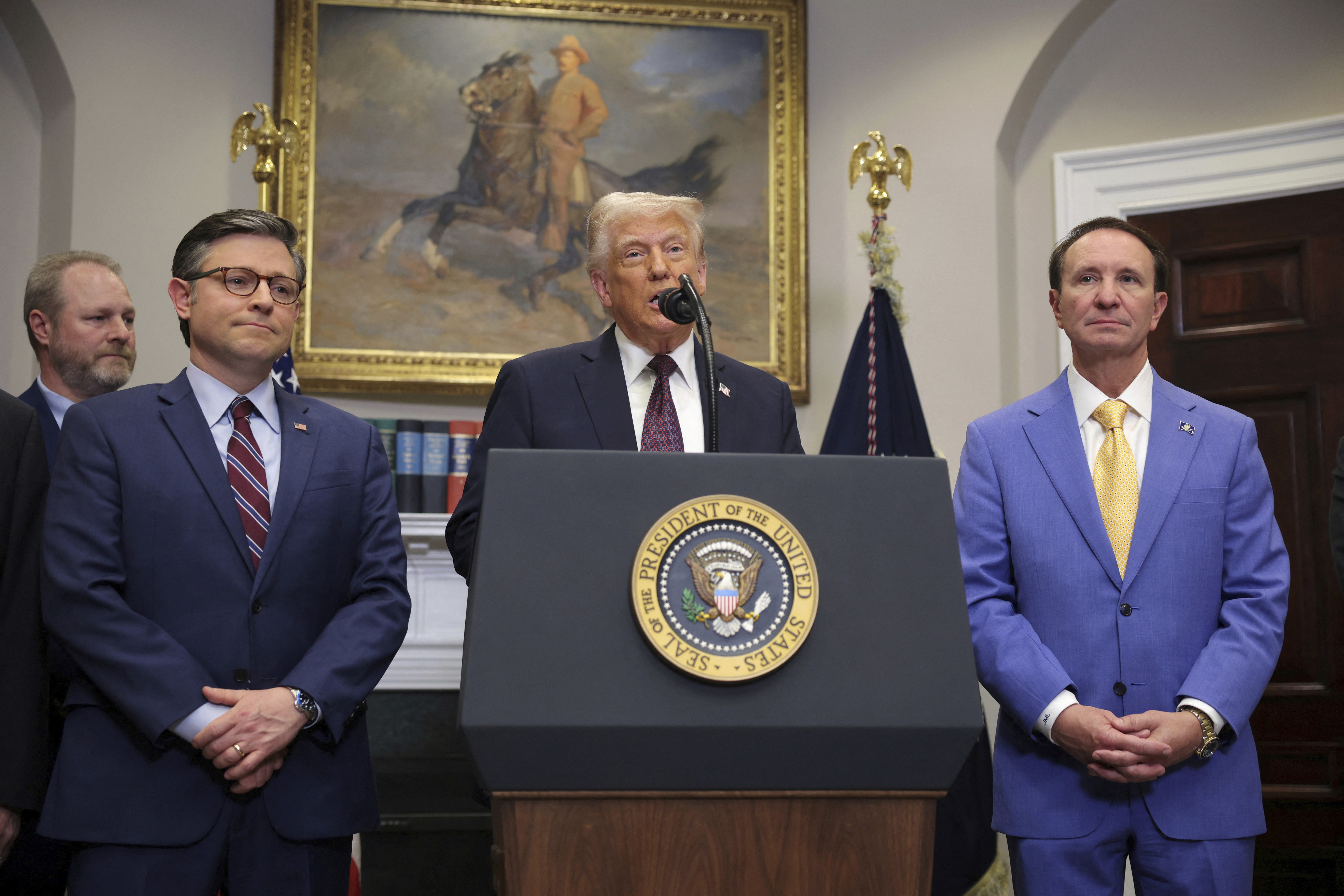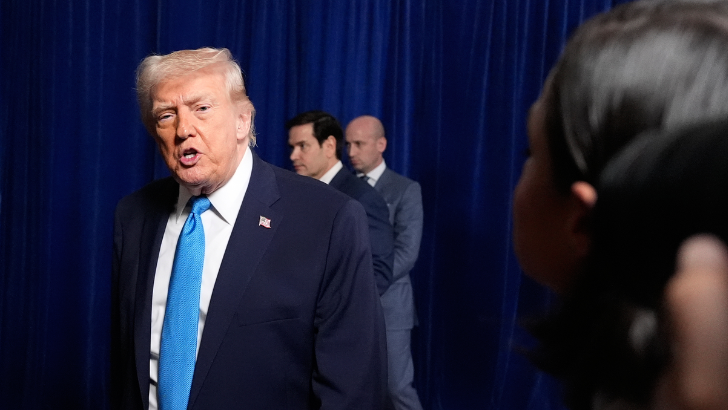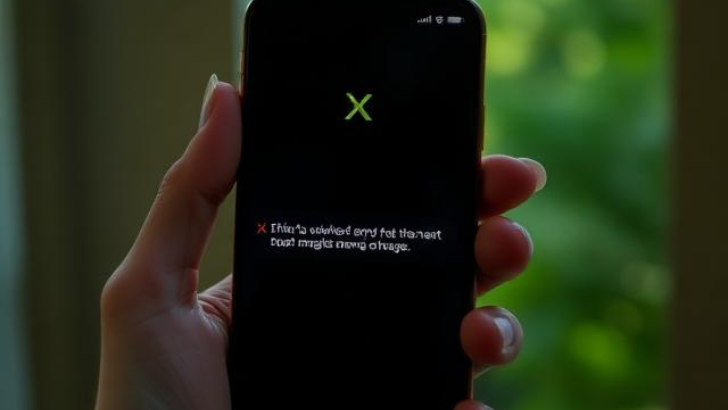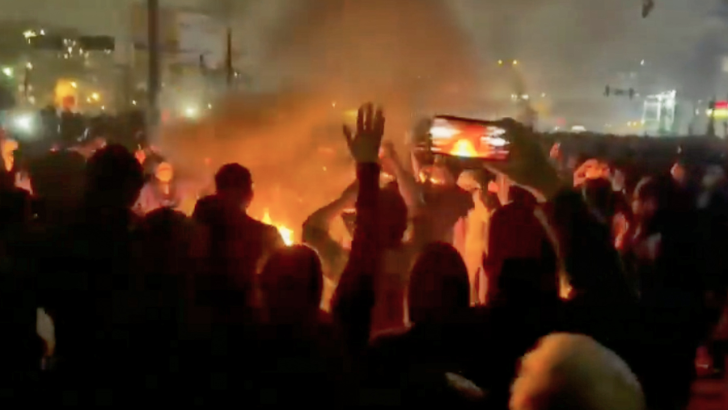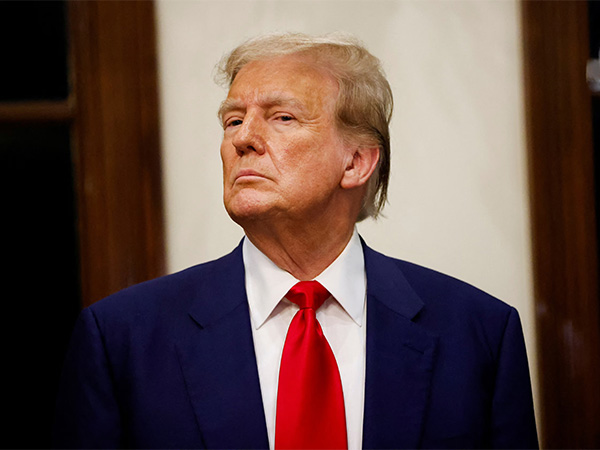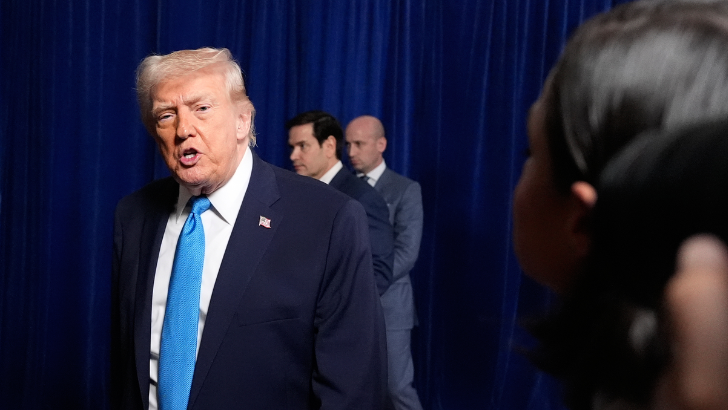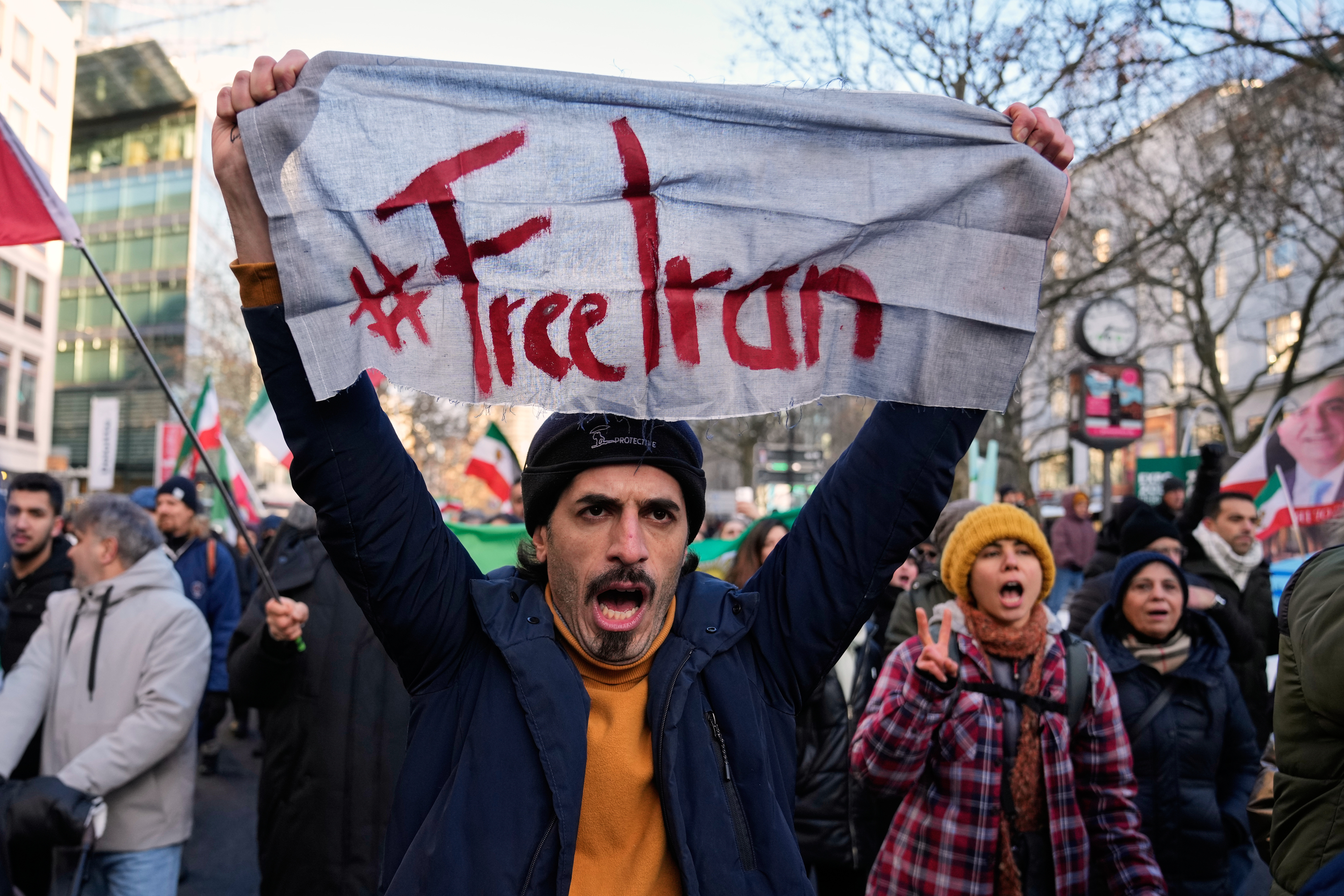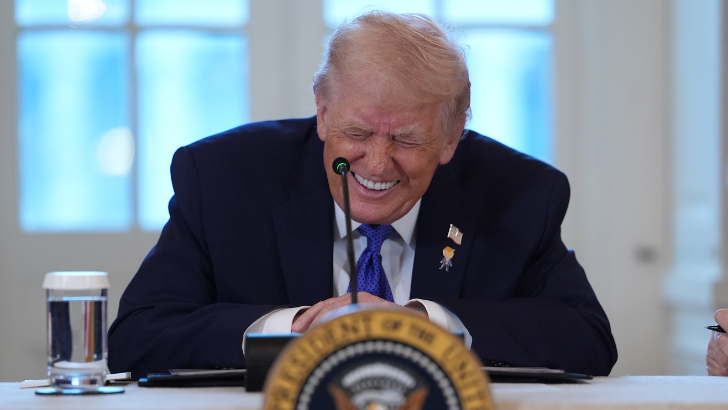Trump officials texted war plans to group chat in secure app that included journalist
Trump initially told reporters he was not aware that the highly sensitive information had been shared, two-and-a-half hours after it was reported. He later appeared to joke about the breach.
PTI
-
Earlier on Monday, Trump told reporters, “I don't know anything about it. You're telling me about it for the first time"
WASHINGTON, 25 MAR
Top national security officials for US President Donald Trump,
including his defence secretary, texted war plans for upcoming military strikes
in Yemen to a group chat in a secure messaging app that included the
editor-in-chief for The Atlantic, the magazine reported in a story posted
online on Monday.
The
National Security Council said the text chain "appears to be
authentic".
Trump
initially told reporters he was not aware that the highly sensitive information
had been shared, two-and-a-half hours after it was reported. He later appeared
to joke about the breach.
The
material in the text chain “contained operational details of forthcoming
strikes on Iran-backed Houthi-rebels in Yemen, including information about
targets, weapons the US would be deploying, and attack sequencing",
editor-in-chief Jeffrey Goldberg reported.
It
was not immediately clear if the specifics of the military operation were
classified, but they often are and at the least are kept secure to protect
service members and operational security.
The
US has conducted airstrikes against the Houthis since the militant group began
targeting commercial and military vessels in the Red Sea in November 2023.
Just
two hours after Goldberg received the details of the attack on March 15, the US
began launching a series of airstrikes against Houthi targets in Yemen.
The
National Security Council said in a statement that it was looking into how a
journalist's number was added to the chain in the Signal group chat.
In
addition to Defence Secretary Pete Hegseth, it included Vice-President J D
Vance, Secretary of State Marco Rubio and Tulsi Gabbard, Trump's director of
national intelligence.
Goldberg
said he received the Signal invitation from Mike Waltz, Trump's national
security advisor, who was also in the group chat.
Hegseth
in his first comments on the matter attacked Goldberg as “deceitful” and a
“discredited so-called journalist” without offering further explanation. He did
not shed light on why Signal was being used to discuss the sensitive operation
or how Goldberg ended up on the message chain.
“Nobody
was texting war plans and that's all I have to say about that,” Hegseth said in
an exchange with reporters after landing in Hawaii on Monday as he makes his
way to the Asia Pacific on his first overseas travel as defense secretary.
In a
statement late on Monday, White House spokeswoman Karoline Leavitt said the
president still has the “utmost confidence” in Waltz and the national security
team.
Earlier
on Monday, Trump told reporters, “I don't know anything about it. You're
telling me about it for the first time.” He added that The Atlantic was “not
much of a magazine.”
By
early evening, the president jokingly brushed it aside. He amplified a social
media posting from Elon Musk spotlighting a conservative satirical news site
article with the cutting headline: “4D Chess: Genius Trump Leaks War Plans to
The Atlantic Where No One Will Ever See Them".
Government
officials have used Signal for organisational correspondence, but it is not
classified and can be hacked. Privacy and tech experts say the popular
end-to-end encrypted messaging and voice call app is more secure than conventional
texting.
The
sharing of sensitive information comes as Hegseth's office has just announced a
crackdown on leaks of sensitive information, including the potential use of
polygraphs on defence personnel to determine how reporters have received information.
Sean
Parnell, a spokesman for Hegseth, did not immediately respond to requests for
comment on why the defence secretary posted war operational plans on an
unclassified app.
The
administration's handling of the highly sensitive information was swiftly
condemned by Democratic lawmakers with Senate Democratic leader Chuck Schumer
calling for a full investigation.
The
handling of national defence information is strictly governed by law under the
century-old Espionage Act, including provisions that make it a crime to remove
such information from its “proper place of custody” even through an act of
gross negligence.
The
justice department in 2015 and 2016 investigated whether former secretary of
state Hillary Clinton broke the law by communicating about classified
information with her aides on a private email server she set up, though the FBI
ultimately recommended against charges and none were brought.
In
the Joe Biden administration, some officials were given permission to download
Signal on their White House-issued phones, but were instructed to use the app
sparingly, according to a former national security official who served in the
Democratic administration.
The
official, who requested anonymity to speak about methods used to share
sensitive information, said Signal was most commonly used to communicate what
they internally referred to as “tippers” to notify someone when they were away
from the office or travelling overseas that they should check their “high side”
inbox for a classified message.
The app
was sometimes also used by officials during the Biden administration to
communicate about scheduling of sensitive meetings or classified phone calls
when they were outside the office, the official said.
Leave a Reply
Your email address will not be published. Required fields are marked *








